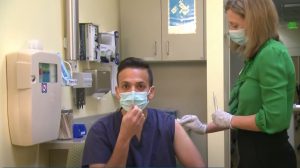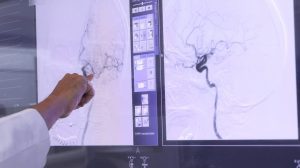NEW YORK (Reuters Health) – Weight gain and metabolic problems complicate use of second-generation antipsychotic medications by children and adolescents, investigators report in the October 28 issue of the Journal of the American Medical Association.
“Cardiometabolic adverse effects, such as age-inappropriate weight gain, obesity, hypertension, and lipid and glucose abnormalities, are particularly problematic during development because they predict adult obesity, the metabolic syndrome, cardiovascular morbidity, and malignancy,” according to Dr. Christoph Correll and associates from North Shore-Long Island Jewish Health System, Glen Oaks, New York.
Their nonrandomized SATIETY cohort study (Second-Generation Antipsychotic Treatment Indications, Effectiveness and Tolerability in Youth) enrolled 338 children ages 4 to 19 years old with mood spectrum, schizophrenia spectrum, and disruptive or aggressive behavior spectrum disorders who had never received antipsychotic medication.
Results in 257 patients are presented in the paper. The remaining 81 patients were excluded from the analysis, largely because they discontinued the medication, were non-adherent, or found the medication to be ineffective or intolerable.
Medications were prescribed at the physician’s discretion. After a median of 10.8 weeks of treatment, the 41 subjects given aripiprazole had each gained an average of 4.4 kg. The 45 patients treated with olanzapine gained an average of 8.5 kg, the 36 given quetiapine gained a mean of 6.1 kg, and the 135 who took risperidone gained an average of 5.3 kg.
By contrast, in a comparison group of 15 patients who either discontinued or were nonadherent to their prescribed medication, the average weight gain during the same period was 0.2 kg.
“Each antipsychotic medication was associated with significantly increased fat mass and waist circumference,” and shifts to overweight or obese status, the investigators report.
Olanzapine and quetiapine were also associated with statistically significant adverse changes for total cholesterol, triglycerides, and non-HDL cholesterol. Risperidone was associated with significant increases in triglycerides. Only aripiprazole was not associated with significant changes in metabolic parameters.
Dr. Correll’s team warns that “the benefits of second-generation antipsychotic medications must be balanced against their cardiometabolic risks through a careful assessment of the indications for their use, consideration of lower-risk alternatives, and proactive adverse effect monitoring and management.”
In an editorial, Drs. Christopher K. Varley and Jon McClellan at Seattle Children’s Hospital urge that “the widespread and increasing use of atypical antipsychotic medications in children and adolescents should be reconsidered.”
“Much of the support for (these) agents is provided by industry-sponsored investigations,” they write. “…It is critical that large-scale, independently funded investigations be conducted to establish the long-term safety and benefit of atypical antipsychotic medications in children and adolescents.”
Reference:
JAMA 2009;302:1765-1773,1811-1812.




